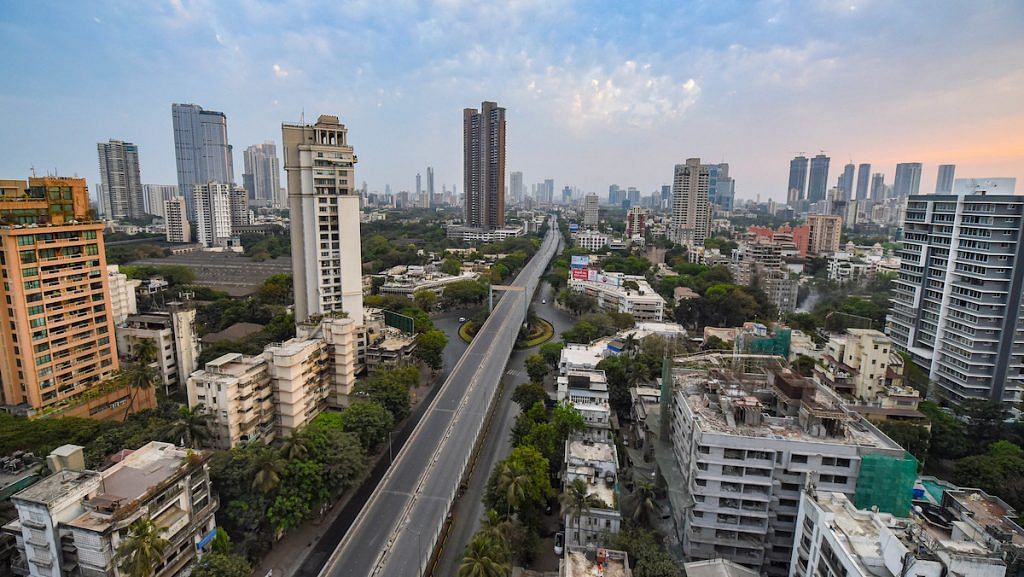While the coronavirus tunnel may appear particularly long and dark, there actually is light at the end of it. As China has done, the world will emerge, somewhat bleary-eyed and bedraggled, into the sunlight. Planet Earth will still be the same, birds will chirp, flowers will bloom, and the grass will be green. However, our world – the world we live in, the world that we conduct our daily lives in, the world that we know so well – will change significantly. We are now entering a new era, call it the Pandemic Period.
Oftentimes, there are profound changes bubbling just below our awareness level. The signs are hidden in plain view, but we close our eyes to them and get on with our busy lives. And then, suddenly, these changes trigger a global avalanche and everyone has to pay heed. The fall of the Berlin Wall in 1989, the 9/11 terror attacks in 2001, and the global financial crisis in 2008 had all been developing over many years but they suddenly reshaped our world. Each of these events transformed national economies, changed spending patterns, and reset global flows of people, trade, and capital. The novel coronavirus pandemic may have even more impact. Let me count the ways …
Also read: Covid-19 threat to healthcare workers and the desperate scramble for ways to protect them
It will change how we travel
It is self-evident that international travel is going to change dramatically in the Pandemic Period. The risk of further terrorist attacks has already transformed our journeys. We have long security checks, airports have become fortresses, and planes have been hardened to prevent capture. The risk of infections spreading globally will similarly transform travel. We may well require a health certificate before we travel internationally. There will probably be testing centres that you will have to go through before you board an international flight. The tests will be fast and accurate. Within a few minutes, you will find out whether you are carrying a particular virus or not and only then will you be able to board a flight. It is likely that these testing centres will have to be placed at every embarkation point (airport, port, highway, etc.) and be run by some government agency under strict privacy safeguards.
Our health records may become publicly accessible. Today, it is our credit score that is accessible for financial institutions to judge at what price they want to us give us loans. Tomorrow it could be our viral score that will be continuously updated and available for different purposes.
If you are free of a particular virus, only then will you be allowed to travel or participate in large public gatherings. There are elegant ways to accomplish this without breaching individual privacy. You will have to first give consent, and then you could be marked as yes/no relative to a particular virus. When you go through some type of access control, the system could look up your yes/no record and let you through. Thereafter your records will be purged and no one will know where you have travelled or what you have done. Several countries are already tracking individuals carefully to trace their contacts and understand potential infection chains.
Also read: Coronavirus: Latest updates on cases in India, all you need to know about COVID-19
It will change healthcare
A vast testing infrastructure will have to be created to continuously keep testing everyone. This will not be cheap and it will be quite intrusive. However, consider the massive social and economic impact of nationwide lockdowns. To prevent another virus from forcing us into a national lockdown, we will have to establish convenient and free testing facilities for everyone.
The Pandemic Period suggests that we may need to provide national healthcare freely to all. Your health is suddenly my problem. We all need to make sure that everyone is healthy, and if they are not, then they should be isolated and treated immediately. To that end, everyone will need to be monitored carefully and some of their health records (such as the viral score mentioned above) will have to become accessible. Moreover, basic health care for all could well become a global public good.
Also read: Modi’s poorly planned lockdown won’t save us from coronavirus, but will kill economy
More globalisation
All this is going to cost money, lots of money. Good health care and testing facilities do not come cheap. Most countries will not be able to afford it. But this is the proverbial butterfly in Brazil problem; we are all interconnected. In the Pandemic Period, zoonotic viruses can come from Africa, the Middle East, China, from anywhere. So we will have to find a way to subsidise healthcare for all. This will still be cheaper than letting our economies being wrecked again. Along with the spending on income support during the coronavirus pandemic, spending on healthcare is going to drive up fiscal deficits around the world. Ultimately, taxes will have to go up to pay for all this. The good news is that it will also make the world a more equitable place since we will have to ensure basic healthcare standards around the world.
Some believe that the Pandemic Period will usher in de-globalisation. Quite the opposite, the Pandemic Period will lead to even more globalisation as we jointly work to solve the world’s problems and address the legitimate needs of all people.
The author is the Chairman of the Standing Committee on Finance in Parliament and a Lok Sabha MP from Hazaribagh, Jharkhand. Views are personal.
